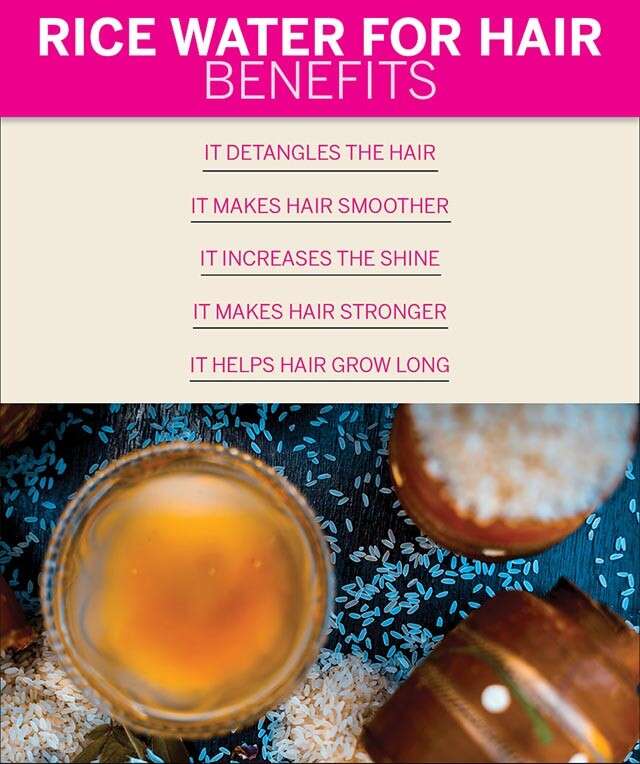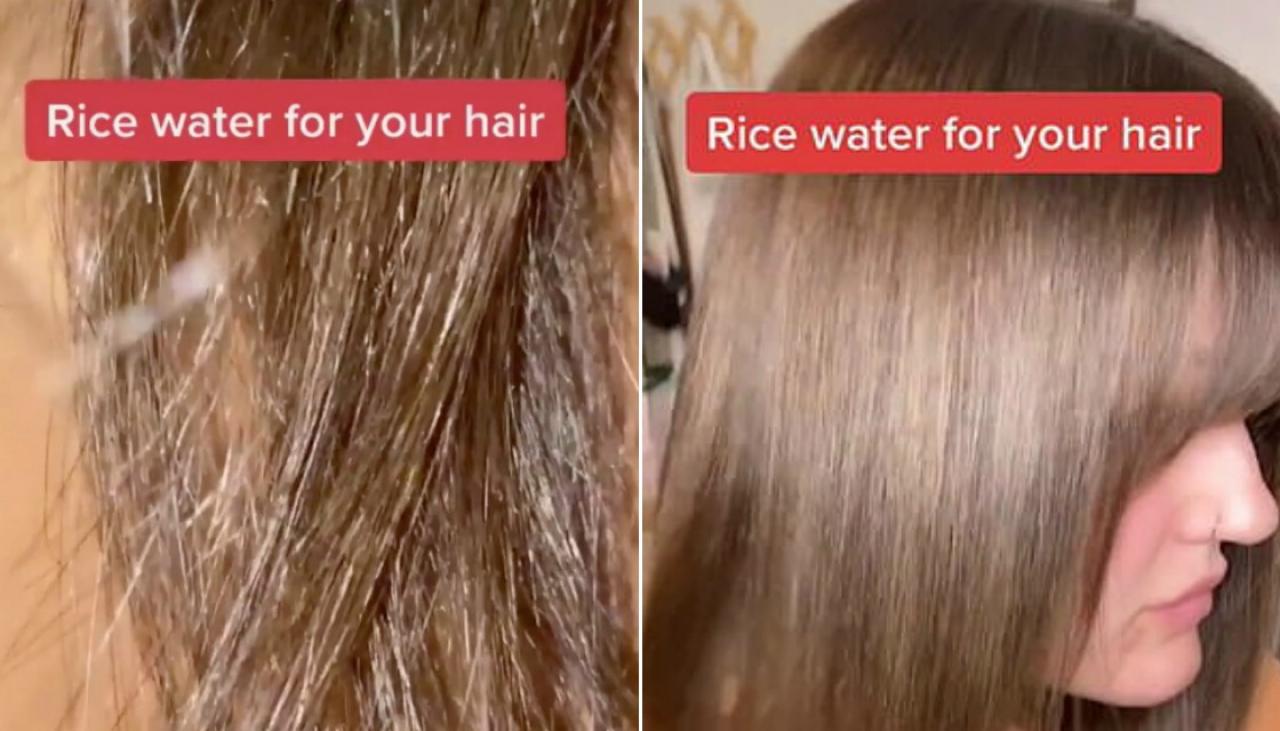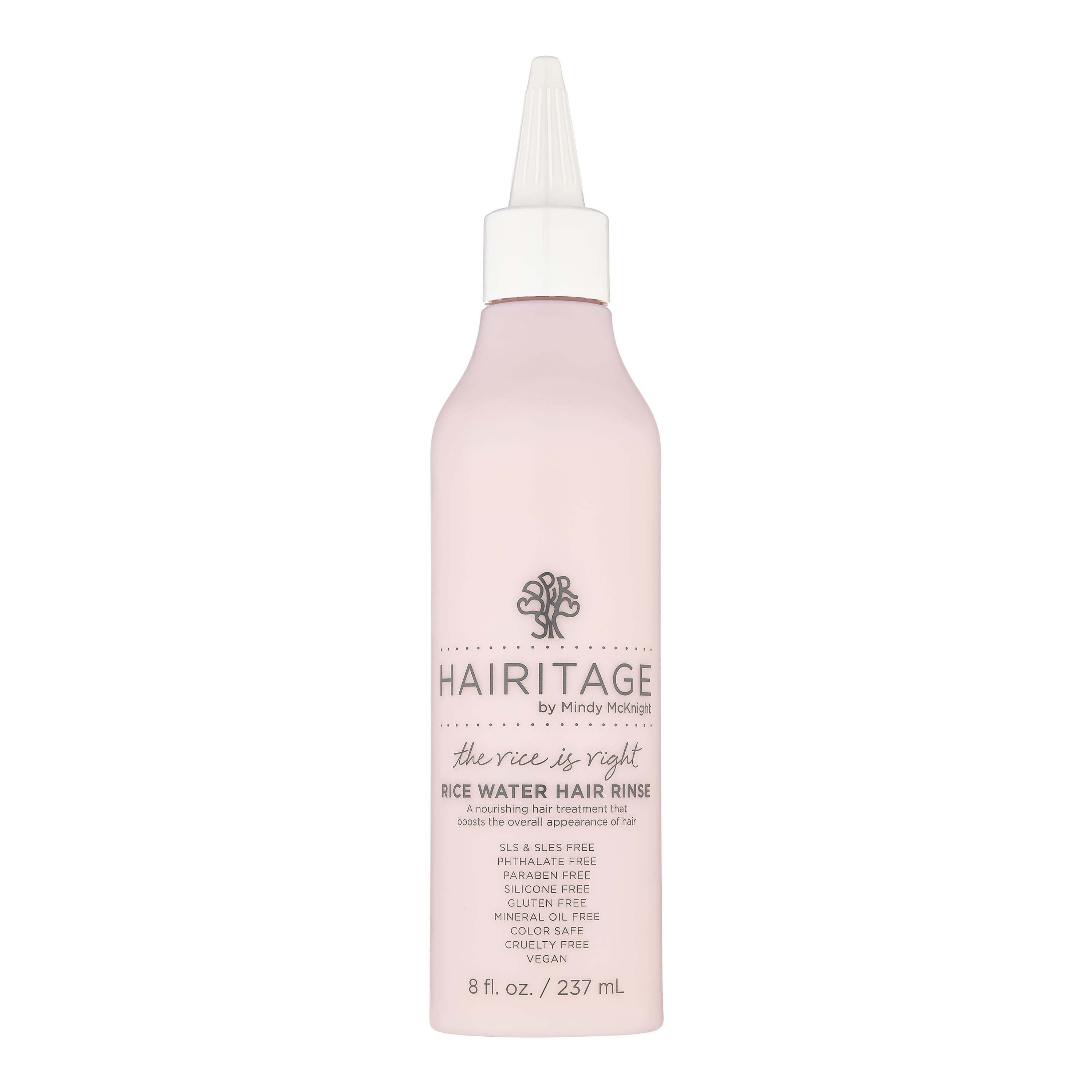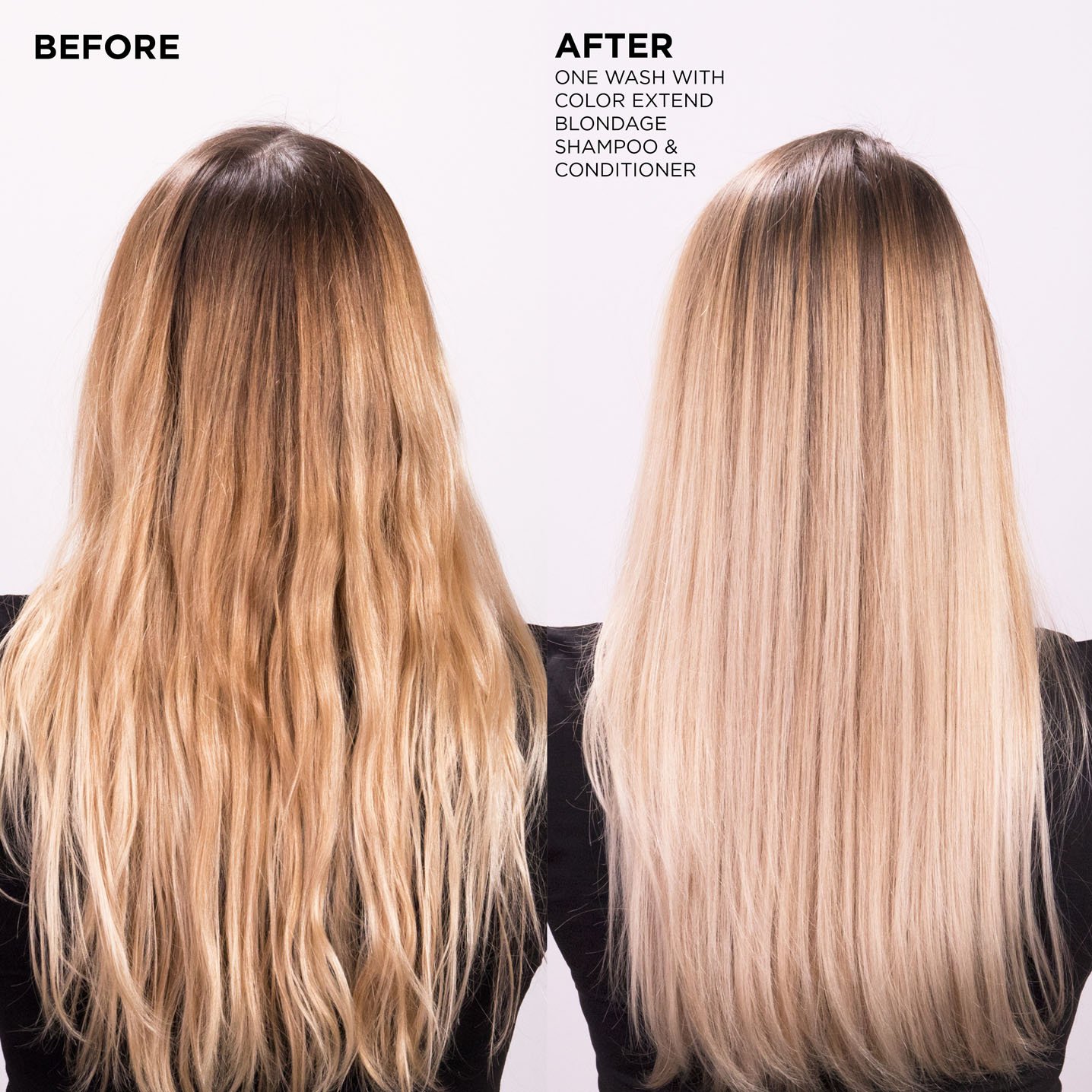Table Of Content

There are several types of hair rinses out there—some branded as clarifying products, others hydrating ones. In the case of rice water rinse, hair growth and strength are the top benefits reported. For what it's worth, we did an explainer on the benefits of hair rinses here, if you want more information. But if you just want a thorough tutorial—complete with tips, tricks, and add-ons, you've come to the right place. Use your rice water as a simple hair rinse after shampooing to provide nourishment and shine to the hair. Or use the rice water to make your own rice water shampoo, leave-in conditioner, hair growth spray, or hair gel.
How long do you leave rice water in your hair?
Read on to learn how to make your own rice water treatments at home. Dating back to the Heian Period in Japan, rice water has long been known to possess the power to nourish the hair and scalp. Known as Yu‐Su‐Ru, the rice water rinse was originally utilized by ladies of the court, and was believed to have contributed to their long hair. Some experts argue the benefits of rice water are felt by the hair, while others believe it is the scalp that stands to gain the most from its use. Before you run to rinse with rice water, you’ll want to check if it’s necessary for you.
How do I apply rice water?
Take note of the way your hair and scalp feels after the treatment. If you like the way things are looking and feeling, rice water might just be the thing your hair needed all along. But if your hair is feeling worse off than before, welp, now you know and can move on to finding a hair mask that does work for you. Like everything, rice water isn’t a one-size-fits-all beauty product. If you find that it makes your hair look or feel worse, then scrap it and go back to your tried-and-true beauty products.
The ultimate treatment for your hair and scalp.
"In theory, the B vitamins and vitamin E may help defend against hair oxidation and aging." The list of benefits connected to rice water runs as long as Rapunzel’s fairy tale hair. Fans of rice water say it can make your hair shinier and stronger while also keeping troublesome tangles to a minimum. Using rice water as a hair care product dates back centuries in Asian culture and recently boiled over as a TikTok trend, with #ricewater gathering hundreds of millions of hair-flipping endorsements. Most scientific evidence about the treatment is inconclusive, so more research is needed to prove the benefits of using rice water. Because rice water is so gentle, most skin types can tolerate it, says Dr. Karp.
From boosting growth and adding shine to strengthening, softening, and even detangling strands, it seems like there's nothing this ancient grain can't do. And despite its recent rise in popularity, rice water's usage on hair is ancient — such treatments have been found to trace back centuries. Rice water has a heavy starch component that can lead to brittleness and breakage over time, so Hill says people with baby fine hair or low-porosity hair should tread lightly when experimenting with using rice water. This wellness industry darling can be blended into a hair rinse to increase shine and reduce frizz. It all comes down to pH. The hair's pH is very important, as an unbalanced hair and scalp can cause irritation, dryness, dullness, and frizziness.
Rice Water Shampoo
Topping the list are amino acids, says cosmetic chemist Ginger King. "Rice contains a small amount of amino acids cysteine, which is a form of hair protein so it helps to replenish. This helps to nourish the hair and provide nutrients to the scalp." Vitamin E. Vitamin E is high in a type of antioxidant called tocotrienol.
Who is a good candidate for using rice water in their routine?

Whether you’re hoping to grow mermaid-length locks or struggling with hair loss, there are now so many ways to increase hair growth. From rosemary oil, hair growth shampoos, strengthening supplements, and hair oiling, it feels like it’s now possible to actually grow long hair with some additional help. The list of rice water's purported benefits for hair and scalp health is also a long one.

Style your hair as usual, and enjoy the nourishing benefits of the rice water leave-in conditioner throughout the day. The reports of using rice water to improve hair growth go all the way back to the Heian period in Japan. It was said that the women of this time rinsed their hair every day with rice water and had beautiful hair that reached to the floor. Rice water is the liquid left after rice has been boiled or soaked. Anecdotes can be found about the promising benefits of rice water, but scientific evidence is lacking. According to a 2012 study, fermented substances have a higher amount of antioxidants.
Kim Kardashian Hair Hack Mocked - Newsweek
Kim Kardashian Hair Hack Mocked.
Posted: Wed, 06 Mar 2024 08:00:00 GMT [source]
What to Know About Rice Water for Hair
Check out our full apple cider vinegar hair rinse tutorial here. As it turns out, Japanese court ladies—and not Cardi B (go figure)—were the first to use rice water on their manes. As the story goes, their hair care routine involved rinsing their suberakashi (floor-length hair) with water made from washing rice, which may have contributed to their stunning lengths. So whether you're looking to grow your tresses or strengthen them—or both—rice water might be the treatment to make your hair dreams come true.
An older study from 2010 reported that rice water improved hair elasticity. Outside of this report, however, there is no evidence to support rice water for this use. A research company based in Japan tested rice water and found that one of its components, inositol, penetrated the hair gradually, strengthening and protecting the hair.
You can use this gel to achieve different hairstyles, define curls, control frizz, or create sleek looks. Kandasamy notes that he does not recommend rice water to clients with overly chemically treated hair. Rice water is likely safe for most people, but a person with scalp inflammation should be cautious in using it, and those with a rice allergy should avoid it. Anyone with sensitivities or allergies to rice should also avoid using rice water. Read on to find out whether or not there may be benefits to this practice, and how to go through the steps of washing with rice water.

No comments:
Post a Comment